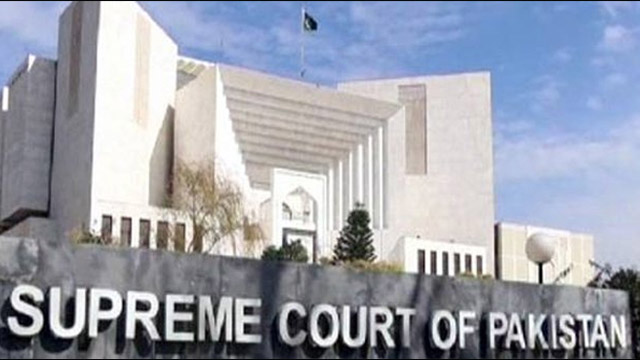SC rejects different petitions which could cause delay in elections
Court says we would not allow derailing the elections
Suspends all the orders of the high courts regarding the delimitations carried out by ECP
Justice Sardar Tariq Masood says in result of the announcement of election date some stability has come in the country
ISLAMABAD ( Web News )
The Supreme Court of Pakistan on Tuesday rejected different petitions which could cause delay in elections. The court suspended all the orders of the high courts regarding the delimitations carried out by Election Commission of Pakistan (ECP). The petitioners had raised objections on the delimitations of the several Balochistan Assembly constituencies carried out by the Election Commission of Pakistan (ECP). The court said that we would not allow derailing the elections. The court said delay in elections in no way is accepted.
The latest decision comes just a day after the apex court declared that no one could use the powers granted to the ECP under the constitution, reversing the judgment passed by the Balochistan High Court which had gone for delimitation of two provincial assembly constituencies in Sherani and Zhob.
As a three-member bench headed by the Acting Chief Justice Sardar Tariq Masood and comprising Justice Syed Mansoor Ali Shah and Justice Athar Minallah heard the matter. The petitions were filed by Mir Khan, Naeem Khan Bazai, Tahir Mahmood Khan, Akhtar Hussain, Nasrullah Bareech and others. Senior lawyer Hamid Khan Advocate, Senator Kamran Murtaza Advocate, Malik Qamar Afzal Advocate and other appeared on behalf of the petitioners. Election Commission of Pakistan, Chief Elections Commissioner Sikandar Sultan Raja, Secretary Election Commission of Pakistan Omar Hamid Khan and others were made party in the petitions. During the hearing Secretary ECP Omar Hamid Khan, DG Law ECP Muhammad Arshad and other officials of the commission appeared before the bench.
Justice Sardar Tariq Masood while addressing the counsel of one petitioner Malik Qamar Afzal Advocate observed that the in result of the announcement of election date some stability has come in the country, adding that whether the petitioner did not wants stability? Justice Sardar Tariq Masood remarked that announcement of the election date not a usual thing.
Justice Syed Mansoor Ali Shah told the petitioner that they would not disturb the election date – February 8 – for the sake of such applications. “If you don’t want elections on time then you should give a statement in court, he remarked. Justice Syed Mansoor Ali Shah said that whether it is a small thing that the elections in country are not held on time, adding that currently the orders of the high courts are suspended and they will be heard after the elections.
The Supreme Court judge also made it clear that they would not allow [anyone] to derail elections. Justice Shah said nothing could be done as the election schedule had been announced and entertaining individual petitions would affect the electoral process.
Similarly, Justice Athar Minallah remarked that there shouldn’t be any delay in elections and they would not allow anyone to do so. Justice Athar Minallah remarked that the Supreme Court is very clear that no one be allowed to delay the elections, adding that the election schedule has been announced so there is no reason in delaying elections, there should be no delay in elections and no one will be allowed to delay the elections.
While dictating the order, Sardar Tariq Masood suspended all the orders of the high courts regarding the delimitations.
It was Amir Khan – the petitioner – who challenged a Balochistan High Court decision about the PB-12 delimitation, which also raises a question: how the provincial top court had modified the delimitations of two constituencies in one case [against which the ECP had moved the Supreme Court] and not when it comes to the second.
The Supreme Court in recent days has acted swiftly to foil the seemingly organised attempts to delay elections.
Previously, it had stopped the high courts from interfering in the domain of ECP – a constitutional body itself – to make it more powerful and immune from outside influence.
In first such move, it had nullified the ruling passed by Justice Ali Baqir Najafi of Lahore High Court (LHC), who stayed the appointment of bureaucrats as election officials [district returning officers and others] on a petition filed by the PTI.
Chief Justice Qazi Faez Isa had also written in the orders that the LHC judge interfered in the Supreme Court jurisdiction and the plaintiff had committed contempt of court – a development that also included prompt issuance of election schedule.

